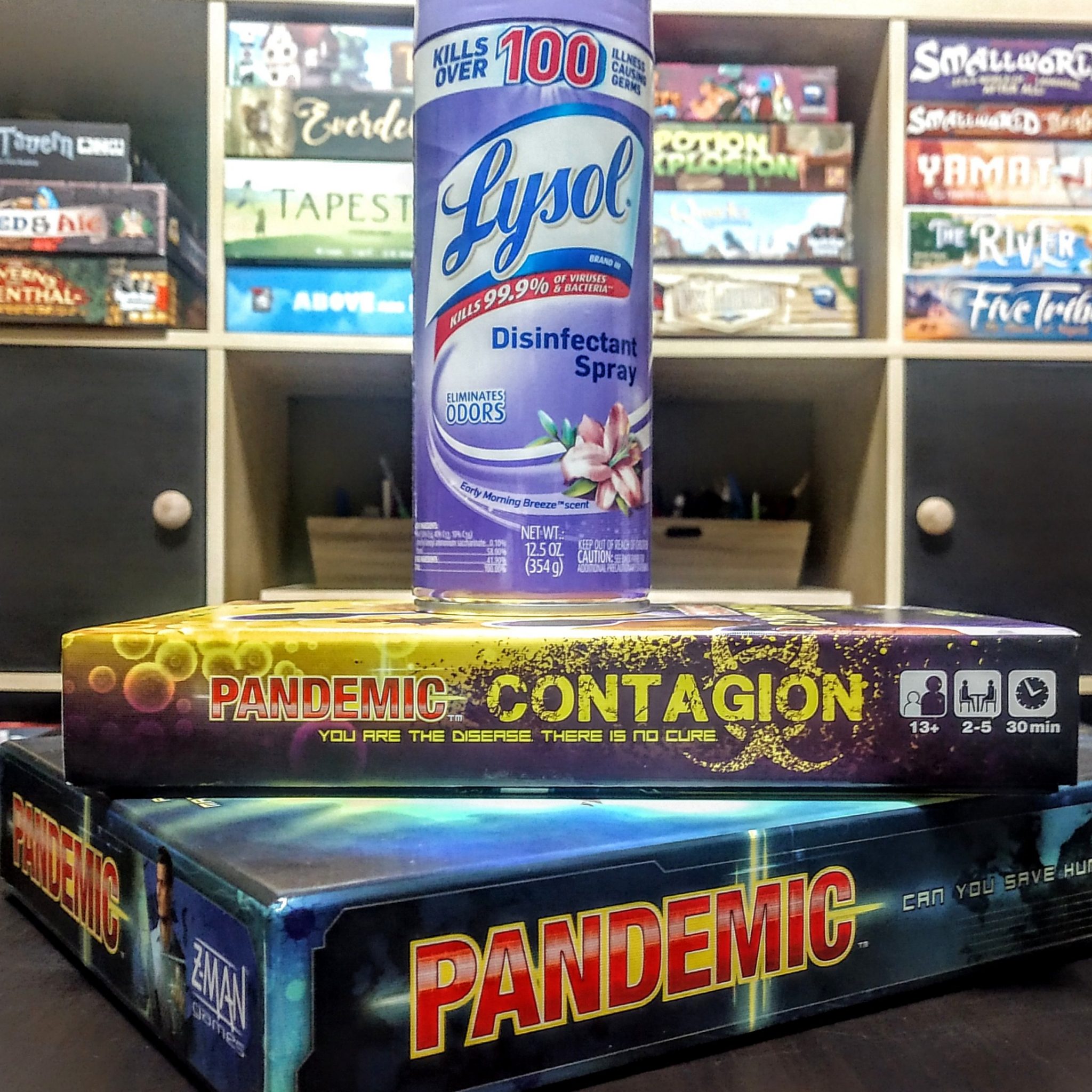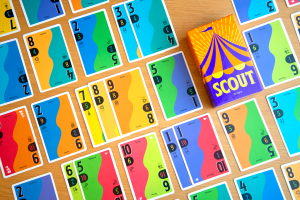
In a month or so, things in BC, Canada will start to loosen up. People will be able to go back to work with restrictions and some businesss will open up. I will write this piece with the assumption that we won’t go back to ‘normal’ for at least a year. We will have some outbreaks, closures, openings until a vaccine is found…ETA 2021.
How will things shake out for the board game industry once we settle back into the new normal next year. By this I mean the publishers, stores and cafe’s that make it up. This will all be pure speculation based on intuition, experience and the knowledge I have of the industry.
The hardest hit will be the small local gaming store (B&M) that focused on Magic the Gathering. Many of these stores are run by passionate gamers who loved the scene and the game and ran their store on pretty thin margins. As it stands, small businesses are receiving little help in regards their largest fixed cost…rent. a $40,000 zero interest loan has been given out in Canada, of which up to $10,000 can be forgiven. This is essentially just passing the cost down the line to a future in which their business is unlikely to be any more profitable than it already is. It’s easy to forget that these owners are also paying rent/mortage on their own homes as well, plus other fixed costs like insurance and utilities. When the restrictions are lifted how will the psychic shock affect M:tG players. It’s a social game, people will only buy product if they have people to play against. How keen are people going to be placed in a small-ish space will 10-20 other people in close proximity? I fully expect a wave of closures over the next year, which will be tragic, especially in smaller communities where it is the only place to meet and play.

The online stores will, I have no doubt, have benefitted from this as people stuck at home scramble for things to do and board games are often mentioned. I read that sales of games are up by almost 250% in the USA, much of that will be traditional board games like Monopoly, but when you search online for ‘best 2 player games’ a large number of hits will point to the modern titles like Ticket to Ride and Carcassonne. Those (non-Amazon) online gaming stores (OLGS) will have received a bulk of those sales and also in visibility. With so many people buying online in the last few weeks, we will see a change in habits once things settle down. Many people will go back to supporting local, but in these situations when forced to change, some will stick and keep buying online. This will be another hit to the local store; and as more B&M stores close, the games people would have bought locally, will now be bought online, increasing the OLGS market share. The final couple of wallops will be the upcoming recession, leaving fewer dollars in people’s pockets to spend. To be fair, board games have been fairly depression resiliant because they are a cheap night in during tough times. However, people nowadays have a lot more games and don’t ‘need’ more and will more likely survive on what they have. Finally, the Canadian dollar is weak right now and demand for our natural resouces low, meaning it’ll not bounce back particlarly soon. Board Games are sold in US dollars which has surged in recent weeks driving up the cost of games in Canada by 10% already. This may force people online looking for cheaper deals than their FLGS can offer which has way higher overheads and a smaller market, unlike the OLGS which operates on huge volumes with smaller margins.
What about the Board Game Cafes? Well unlike smaller B&M stores which have a fairly uniform business model, cafes are a lot more varied. Some have retail, some have liquor, table service, closer to a restuarant/cafe etc…

I feel that one of the biggest factors in their ability to survive will be the amount of debt they were saddled with when the lockdown happened. If they are newer (1-2 years old), this will hit harder. Borrowing more money to add to the debt already being serviced may put a few over the edge. Again, rent will be a killer. If they get no forgiveness and 3 months of minimal income (a few are doing retail, food delieveries), then it could be a hole just too deep to dig themselves out of. If they can get through that, they will be looking at 6-12 months of operating at 50% capacity as limits to occupancy are imposed. You can reduce your staffing to help, but again those fixed costs (rent, insurance, POS charges) all stay the same. If they don’t already do retail, some will add it to diversify and I’m sure other creative measures will be taken to find new revenue streams, but it will leave any business that survives this very weak indeed.
One of the biggest unknowns is how people will react to touching things touched by many other people. There is not a lot cafes can do about this other than provide sanitizing methods for peoples’ hands at the table and request frequent hand washing. We cannot realistically sanitize games because it would destroy them and we can’t with any confidence assure people we have caught every game touched by another person. The psychic scar this event has left on people will I’m sure have left a healthy percentage with an increased aversion to touching common property like door handles, faucets and board games.
There are a few positives though. A evening at a board game cafe is a relatively inexpensive option. In a time of recession, a trip to the movies or dinner at a restaurant may price out a lot of people. 3 hours at a cafe is a very reasonable choice for people on a budget. People will be craving interaction, one thing that a board game cafe offers more than anything else.
A couple of cafes have already closed their doors for good and I’m sure more will follow. How healthy the rest will come out of this is the big question on our minds. It may take a couple of years to get back to where they were before by which time a healthy closure toll may have been taken…
D&D is very popular right now. The major peave I found from players was the difficulty of people getting together consistently to play. Someone always seemed to have clashing plans or bail at the last minute. Now with everyone forced to separate the joys of remote D&D have revealed themselves. It’s always good to get together, but people have realised that using Zoom or some other remote conferencing isn’t actually that bad and if a player leaves a campaign because they moved away, things don’t necessarily need to stop. Rather than cancel a night because a player can’t leave the house, just do it remotely occasionally.
Remote boardgaming has also seen an uptick. I’ve been doing it too and I can say its OK. I used to wonder if one day people would just remote game with each other rather than hit up the cafe, but it’s vastly different. Even while video conferencing at the same time, something is missing. It’s probably not one thing, but lots of small things. The physical touching, the ability to see the board as a whole, being able to explain rules and questions in person is much easier when you can gesture at something, niggling a player in person and so on. In a push it’ll do, but it is a far inferior substitute in my opinion.
On to the big players, the publishers of games. This I’ll have to speculate a lot more on as I’m more removed. Board games sales have increased, so some will have seen an increase in sales, but these will be the big players with the ‘evergreen’ titles. Games that are established and keep selling even years after release (Ticket to Ride, Bohnanza, Pandemic). Many of the smaller publishers rely on a constant stream of new releases every few months to maintain revenue. Theses are the games that come out, sell a few thousand within a couple of months and then dissapear, lost in the myriad of titles that keep coming out. Those sales keep publishers alive while they hunt for their own evergreen game. Now, however, is a terrible time to release a new game. Conventions are a big release period (GenCon, Essen) and can garner a lot of attention to games, but they will not be happening this year. China where a lot of games get made has seen a tonne of disruption, so releases (and cashflow) have been pushed back by manufacturing and shipping delays. Alliance, the biggest distributor in the USA is closed. Many firms have exclusive deals with them to sell their games to stores. That means no-one is getting their games right now. When those games that are backed up do come out, it may be in a waterfall of other games making it even easier for titles to get lost in the slower market of a depression. Overheads for board game publishers are relatively low compared to most businesses, but so are margins. I’m guessing a lot of the smaller firms are going to get swallowed up by the bigger ones if they have quality titles. Those that operate game to game will dissapear. Is this a bad thing? Well for those involved, yes. For the wider scene its not the end of the World. Most people felt that there were waaaaay too many publishers making waaaay too many games. Trying to wade through the deluge of games that never stopped was an almost impossible task for most retailers. So in a year or so I imagine we will see a fairly major consolidation in the industry, with a few big players growing or merging with others to stay alive.
TL;DR, well I see:
- a lot smaller brick and morter stores that operated on the margins will close.
- the big online game stores will get bigger.
- board game cafes that are newer and establishing themselves will struggle mightily over the next 18 months.
- many smaller game publishers will be swallowed by the big boys or shut up shop.





